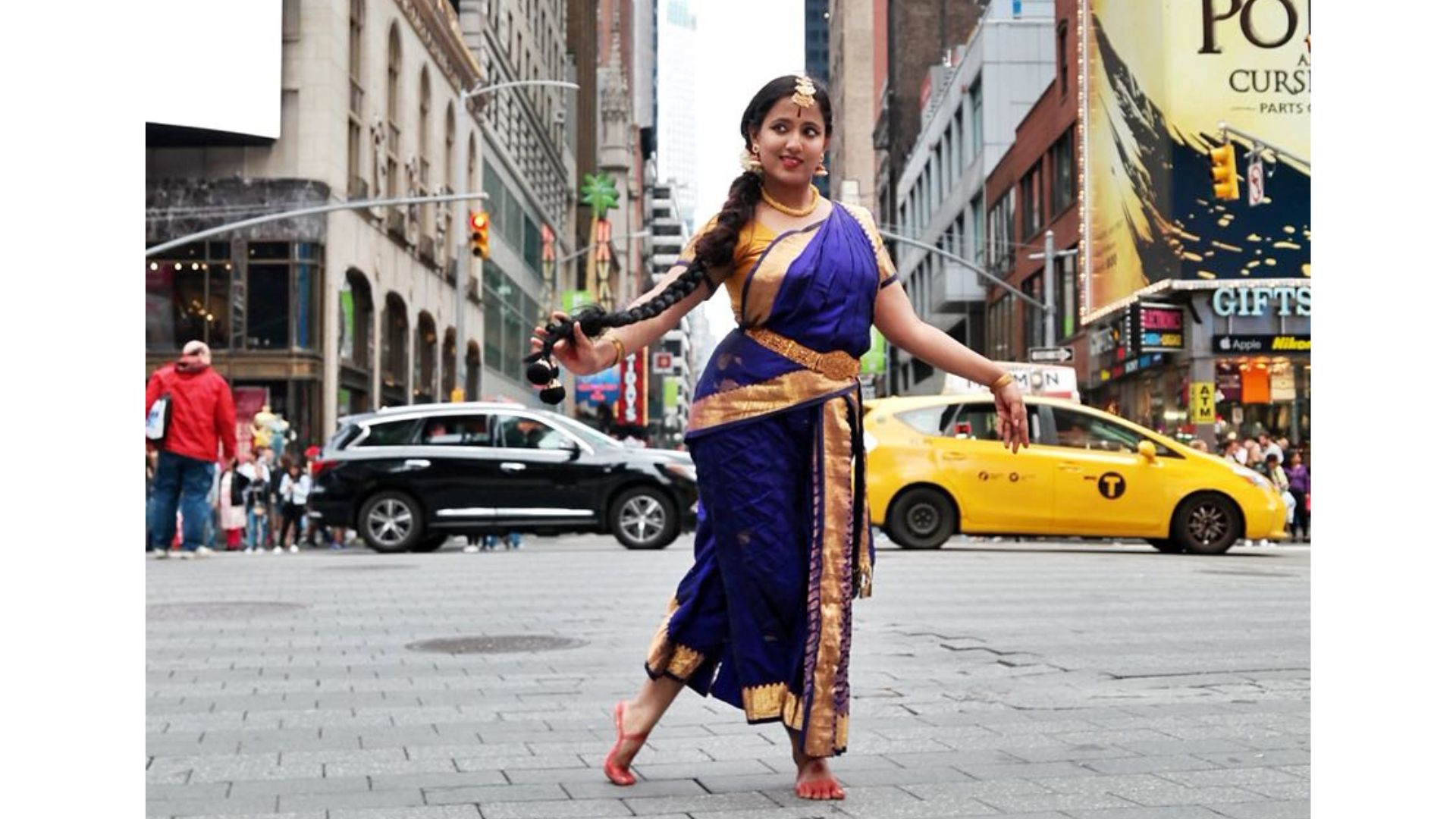Fulbright-Nehru Fellow Lalitha Sindhuri works to understand how cross-cultural training in dance can impact the body and life of kuchipudi dancers.
January 2019

Fulbright-Nehru Fellow and kuchipudi dancer Lalitha Sindhuri was a visiting scholar for an entire school year at Barnard College, Columbia University, New York. (Photograph courtesy Lalitha Sindhuri)
The colorful life of Lalitha Sindhuri is one that can be best described as musical and entertaining. At the very young age of 3, Sindhuri fell in love with dance through films, though the arts are part of her rich lineage, with her father trained in Carnatic vocals. Her father had left his music career and ended up working as a banker. But he didn’t want the same fate for his talented daughter. So, at age 11, Sindhuri took her first step as a kuchipudi dancer. Today, she is a senior research fellow at the Department of Dance, University of Hyderabad. “Kuchipudi is among the eight classical dance forms of India…The dance form is known for its scintillating and peppy footwork, graceful body movements, natural expressions and the theatricality in it,” says Sindhuri. Historically, men were the only ones allowed to practice and perform kuchipudi dance, but around the 1940’s-1950’s, women started to learn the form and today, we see many more female performers.
Whether because of her artistic genes or the conditioning and instruction by legendary dance gurus like Vedantam Satya Narasimha Sastry, Sindhuri excelled in dancing from an early age and continues to perform on stage. Her interest also lies in the study of the ways contemporary Western dance can contribute to the dynamics of kuchipudi, as a recent recipient of the Fulbright-Nehru Doctoral Research Fellowship.
As most Indian parents, Sindhuri’s parents hoped that she would study engineering or computer science. Given those expectations, when it was time to head to college, Sindhuri enrolled in a computer science program and was top of her class. Regardless of her academic abilities, she could not ignore her passion for dance and graduated with a Masters of Performing Arts in Kuchipudi Dance degree from the University of Hyderabad, turning what was a childhood hobby into a lifelong career.
Sindhuri went on to pursue a doctorate degree at the university, under the supervision of Aruna Bhikshu. In her fourth year of study, Sindhuri was selected as a Fulbright-Nehru Doctoral Research Fellow to be a visiting scholar for the entire school year at Barnard College, Columbia University, New York. She conducted her studies under Uttara Asha Coorlawala, professor (adj) dance, while developing her thesis on “Dancing Bodies: Cross-Cultural Training in Dance.” Not until Sindhuri set foot in the United States did she begin to experiment with different dance styles like ballet, modern, African dance and flamenco. Through the exploration of Western dances, she began to integrate the positive mechanisms at work in those various styles and look at how certain contemporary pedagogical techniques in the West can be applied to optimize the life of kuchipudi dancers. In other words, how cross-cultural training can impact a dancer’s body in terms of flexibility, endurance, stamina, agility and total body awareness.
“…Western pedagogy has made and is still making a constant effort toward the health and well-being of the dancer. The biomechanical and anatomical understanding which they provide in ballet is quite helpful to any dancer. It prevents the dancer from injuries and makes him/her an aware dancer,” says Sindhuri. She adds that all dancers, whether from the East or the West, truly benefit from studying techniques across cultures, taking what works from one culture and integrating it into the other.
And what does this artiste, computer scientist and cross-cultural dancer have in store for the future? She will continue to do what she does best—perform kuchipudi. Sindhuri dreams of choreographing dance productions and, perhaps, 10 years down the line, she will open her own school of dance, sharing the importance of dancing across cultures, with one primary goal in mind—to reach into the hearts and souls of the audience through movement and music.
Megan McDrew is a professor of sociology at University of California, Santa Cruz, and Hartnell College. She is based in Monterey, California.
COMMENTS